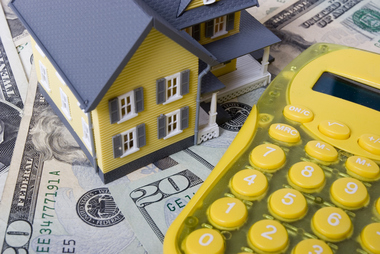
Should You Set Up an Escrow Account?
 When bills come for insurance premiums and property taxes, your mortgage lender or servicer can use money set aside in an escrow account to cover the payments. The account is funded by small sums added to each regular mortgage payment. Then, when your insurance or property tax bill comes due, the lender uses the escrow funds to pay it. That way, you never have to pay a large bill in one shot. If you’re in a community with a homeowner’s association, you can add those fees to the escrow account to further streamline your monthly budget.
When bills come for insurance premiums and property taxes, your mortgage lender or servicer can use money set aside in an escrow account to cover the payments. The account is funded by small sums added to each regular mortgage payment. Then, when your insurance or property tax bill comes due, the lender uses the escrow funds to pay it. That way, you never have to pay a large bill in one shot. If you’re in a community with a homeowner’s association, you can add those fees to the escrow account to further streamline your monthly budget.
The biggest pro of an escrow account is that all your bills are paid automatically. All you have to do is fund the account with one payment each month. You avoid penalties like late fees and don’t face surprise tax and insurance bills.
Another positive? Lenders and loan servicers sometimes offer buyers an incentive for setting up an escrow account, like a lower mortgage interest rate that can make a significant difference in the cost of buying a home. And most, but not all, lenders are legally obligated to pay you interest on the escrow money.
Mortgage lenders and servicers must send you annual escrow statements, which provide key details about the money held in the account and payments you’ve made. Of course, mortgage insurance premiums and property tax assessments may rise or dip, so your monthly payment will be slightly higher than the cost of your bills in order to build up a small emergency fund in the account. If that doesn’t wind up being enough, the lender will cover the difference. However, your payments will go up in the future, a possible negative. Another negative is that you may be required to pay a deposit up front when you open the account. This deposit, sometimes called a prepaid, will be equal to several months of taxes and premiums, which can significantly add to your mortgage closing costs.
Escrow may be mandatory
For many homeowners, there’s no choice. Unless you’re bringing a sizable chunk of cash to the closing table, opening an escrow account is a prerequisite. This way, the lender can be assured that taxes and insurance premiums are being paid. Federal Housing Administration and United States Department of Agriculture loans always require buyers to set up escrow accounts.
But all is not lost — you may be able to get rid of the escrow account down the line if you want. Be prepared to show proof that you’ve made on-time payments each month and built enough equity in your home.
So if you have the choice, is an escrow account right for you? Speak with your mortgage lender or servicer, your real estate agent, or your financial adviser. Think about your budgeting style and whether you like to pay a similar amount each month or you prefer to prepare on your own for mortgage, insurance and any HOA costs.



